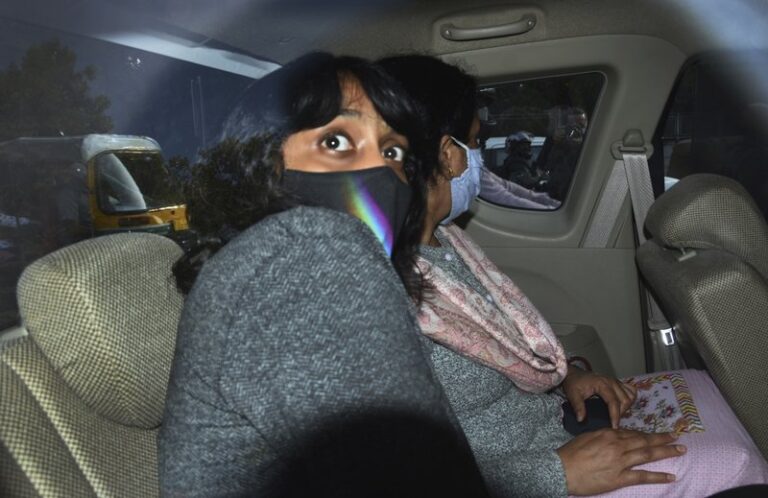
(AP) — To her friends, Disha Ravi, a 22-year-old Indian climate activist, was most concerned about her future in a world of rising temperatures. She was drawn to veganism, enjoyed watching Netflix and spent time on social media.
But her life changed last month when she became a household name in India, dominating headlines after police charged her with sedition, a colonial-era law that carries a sentence up to life in prison.
Her alleged crime: sharing an online handbook meant to raise support for months-long farmer protests on Twitter.
“If highlighting farmers’ protest globally is sedition, I am better (off) in jail,” she said in court two weeks ago.
She was released after 10 days in custody. Her mother told reporters in Ravi’s hometown of Bengaluru that the case “has reinforced our faith in the system,” and called her daughter strong and brave.
Going after activists isn’t new in India, but Ravi’s saga has stoked fear and anxiety. Observers say what happened to Ravi — a young, middle class, urban woman — hit home for a lot of Indians, who suddenly feared they could be jailed for sharing something on social media. Criminal lawyers also point to a troubling frequency in the way sedition is invoked. Many say checks and balances employed by lower courts, often overwhelmed with cases, are fading.
The incident has raised questions over India’s democracy, with critics decrying it as the latest attempt by Prime Minister Narendra Modi’s Hindu nationalist government to mute dissent and criminalize it.
“They targeted someone not usually targeted by the Hindu right-wing — a young girl from South India, who doesn’t have a Muslim name and is not linked to left-wing student politics,” said prominent historian Ramachandra Guha. “The message they wanted to send is that they can go after anyone.”
Earlier in February, Ravi, part of the Indian wing of Fridays for Future, a global climate change movement founded by Greta Thunberg, was charged with sedition for allegedly compiling and editing a Google document that explains how to carry out a social media campaign. It aimed to help farmers, camped outside New Delhi since November, amplify protests that have convulsed India, posing one of Modi’s biggest challenges.
The farmers, a majority of whom are from the northern states of Punjab and Haryana, want a repeal of laws passed last year that they say will favor large corporate farms and devastate their income. The government says the laws are necessary to modernize Indian agriculture.






